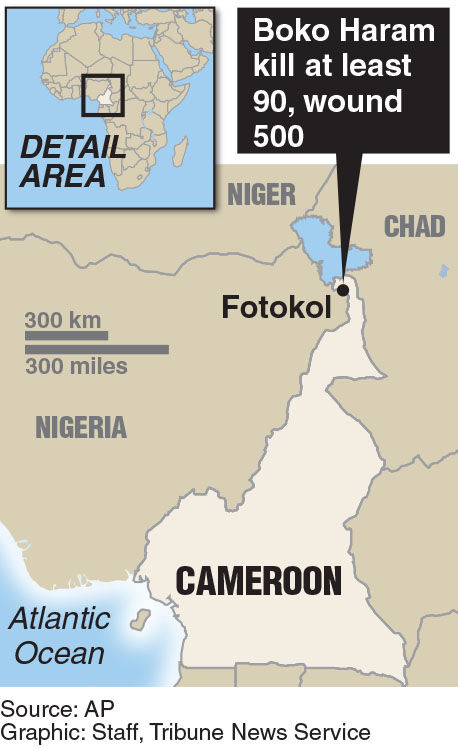Boko Haram attacks are regular, but media pays no attention
Boko Haram forbids Muslims from participating in political or social activity related to Western society.
If you have not heard of Boko Haram, a militant group based in Nigeria and active in Chad, Niger and Cameroon, you would not be the only one. It seems as if most news stations or major social media networks have not promoted much news about this terrorist organization.
“Boko Haram [known as a jihadist group] was formed in 2002, launched military operations in 2009 to create an Islamic state, was designated a terrorist group by the U.S. in 2013, and declared a caliphate in areas it controls in 2014,” according to BBC News.
Boko Haram forbids Muslims from participating in political or social activity related to Western society.
In April 2014, you might have heard of the hashtag “Bring Back Our Girls.” The reason of the nationwide hashtag, which was supported by Michelle Obama, was because Boko Haram kidnapped 300 girls from a primary school.
To stop the spread of Western beliefs, they have attacked schools in northern Nigeria. They have bombed a bus (the explosion killed over 70 people). They attacked one town for 5 hours, killing 300 people. In January alone, they killed as many as 2,000 people.
This February, the group abducted at least 30 people on a bus, causing Nigerian elections to be postponed.
“The insurgency has forced a postponement of Nigeria’s presidential and parliamentary elections from 14 February to 28 March,” according to BBC.
Boko Haram bases most of its actions off of religion, as if that is what Islam preaches. Just like the Islamic State, Boko Haram covers their atrocities with faux-religious reasons.
Boko Haram is another abusive organization that is masking themselves as a religious group to defend their beliefs.
In America, they are similar to the radical Westboro Baptist Church, yet there seemed to be more media coverage for the American organization wanting to burn the Quran than the Nigerian murderers.
Sure, we have all done it: scrolled past heartbreaking or simply uncomfortable topics because we either do not care or are prejudiced. Now should not be one of those times.
Perhaps Boko Haram could learn to love and accept those who believe in different things and who are different than their own. But, at this time, not enough people are telling them to revise their tactics.
For Boko Haram to learn from their mistakes, they must be taught what those mistakes are.







